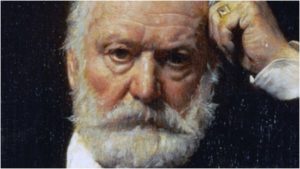
5 Major Operas Based on the Works of Victor Hugo
By David SalazarVictor Hugo, born on Feb. 26, 1802, was one of the great French writers of the 19th century.
Many know him as the author of “Les Miserables,” which was then adapted to the famed musical. Or others might recognize his work “Notre Dame de Paris,” in its English title “The Hunchback of Notre Dame.” He is well-noted for the populism of his works, which often contradicts the contradictory and ambiguous nature of his politics, which could oscillate between royalist and in support of the monarchy, to swiveling in the opposite direction.
But one fun fact about Hugo is that his work was the inspiration for some of opera’s greatest and most enduring works. Don’t believe me?
Here are a few notable operas that are based on the works of this legendary, and yet often overlooked, author.
Rigoletto
Based on “Le Roi s’amuse,” this work prompted the comment that Hugo was born to create stories for Verdi to turn into great operas. Hugo was noted for his strong political perspective that permeates his oeuvre and it stands at the forefront of “Rigoletto,” a work where absolute power’s corruption is called into question by those that serve it.
Ernani
In keeping with Verdi, we turn to another work that is based on Hugo’s “Hernani.” The opera plays up the concept of honor and how it is defined by the nobility. We also see a monarch come to question his own power and how to wield it, surely something Hugo constantly considered in his work. Here we get a sense of that royalist nature of the writer, identifying with the rulers and even expressing confidence in their ability to rule fairly.
La Gioconda & Il Giuramento
Both operas are based on Hugo’s “Angelo, Tyrant de Padua,” though the latter, “Il Giuramento” is not quite part of the repertory staple the way “Gioconda” was throughout the middle of the 20th century. Here we see the writer examining the lives of the lower classes, for which he gained much of his popularity.
Lucrezia Borgia
The Donizetti opera drew its inspiration from the Hugo play of the same name. Here we return to the world of corrupt monarchs and the repercussions their crimes ultimately have. Borgia pays by ultimately killing her own son.


